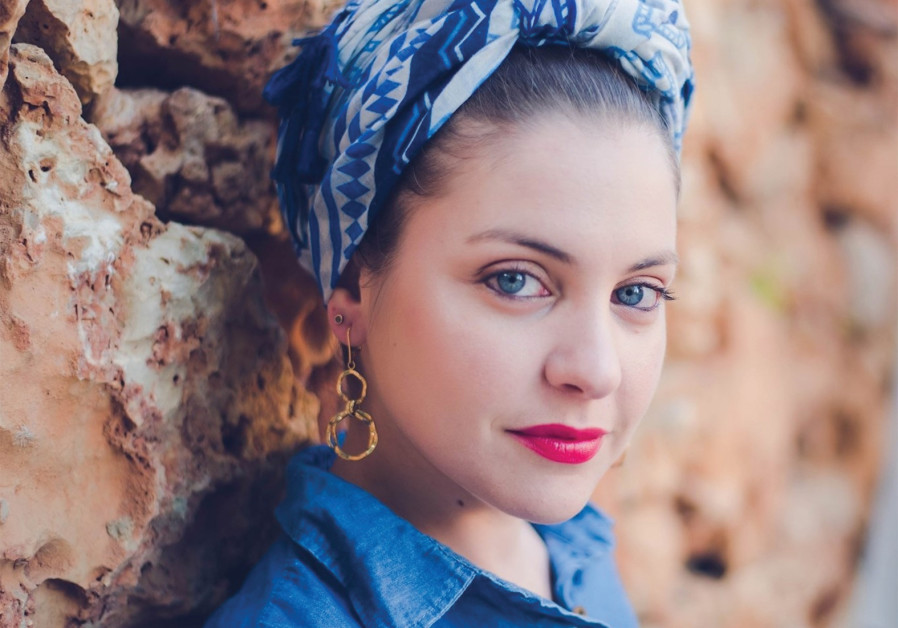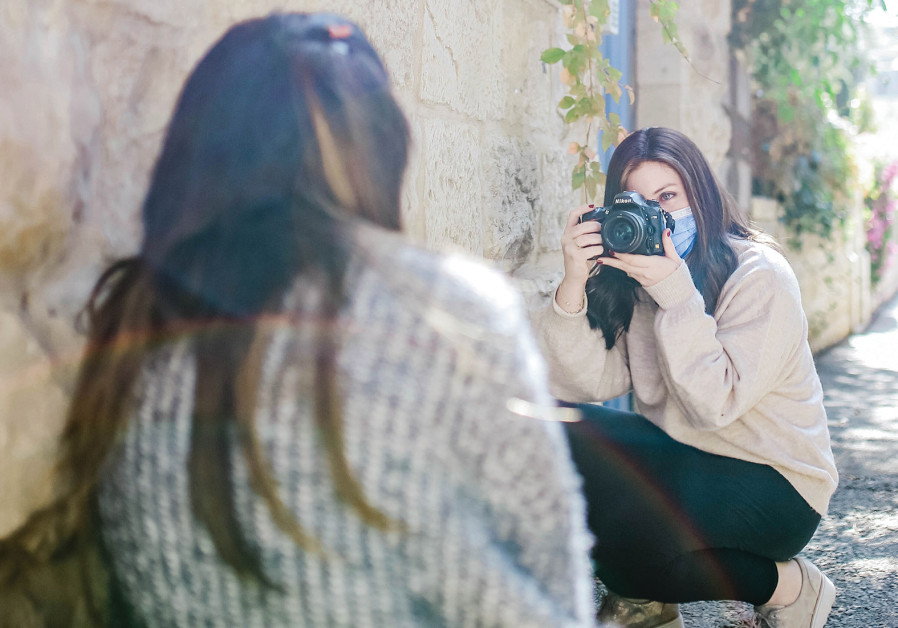Shira Lankin Sheps uses her training as a social worker to empower Anglo women in Israel to share their deeply personal stories of healing from life’s pains.Her platform, known as The Layers Project Magazine, is Sheps’s own pushback against “presenting women... as shallow characters or fully removed from Jewish media spaces.” Instead, her goal is to present them, “as three-dimensional individuals whose lives are full and rich with resilience.”To do that, she welcomes women who have a story to tell about how they have dealt with a challenge that life has served up for them. The stories are shared on The Layers Project website (TheLayersProjectMagazine.com) and Facebook page (facebook.com/TheLayersProject), a community of 10,000 followers. On Facebook, the narratives are released in installments, much the way stories are shared on the social media juggernaut Humans of New York.The Layers Project Magazine presents stories related to mental health, fertility, Israel, Judaism, family, women’s health and much more. Sheps favors subjects who have successfully faced a challenge and can speak openly about it. 
The subjects speak for themselves
Gabi Mischel-Figdor is one of the women featured both in the book and on the cover. Her story focuses on her recovery from an eating disorder. Like all of the women who tell their stories of challenge and healing, Mischel-Figdor reached out to Sheps after learning that Sheps “was looking for stories about people who had experience with eating disorders.”Mischel-Figdor was hesitant when she first contacted Sheps. “I was hesitant mainly because I had just begun sharing my story and so far, I had only done it on my own terms. There was something scary about putting my story in someone else’s hands. After a phone call with Shira, those hesitations went away. It was so clear to me, while speaking to her, that she was going to protect me and my story with everything she had, and that made it feel safe and like something I wanted to be involved in.”Although the book is only just being released in Israel now, Mischel-Figdor said the response to her story has been “overwhelmingly positive and supportive. Every time I put my story out there or speak to a group, there’s a slight bit of hesitation that someone is going to react badly, but the reality is that everyone is very supportive,” she said.“I think for me the most important thing to communicate was that it’s okay to have struggles in life and you’re not alone in that. I really wish that I had more Jewish women to relate to when I was at my worst. It was awfully lonely and I don’t want anyone else to ever feel that way.”Mischel-Figdor shared how honored she feels to be “in this book alongside these other special and powerful women. When Shira messaged me and said ‘I want to put your face on the cover,’ I was shocked. There are so many incredible women in the book. Why me?“When I first learned about some of the women whose stories are featured, I was blown away by how incredible they were, and honestly a little intimidated. But now it just feels like I’m part of a club of powerful women who found their voices, and that’s not something I ever expected to get from this experience.”Zehava Bracha Arky’s story is also featured in the book. Her story is about finding her sense of home as a black woman who grew up in multiple cultures. She offered that her desire, in telling her story for Layers, was to communicate “that even though we have challenges and adversity, we can still thrive and take the best out of each situation. Also, I think I wanted to give a glimpse of what it was like to grow up black in America and overseas.”Arky hesitated initially out of a concern that “my part would sound too negative or that my whole life was consumed by racism and otherness. It wasn’t – it was just part of my life. There were so many other wonderful things I experienced growing up, but the book is more about resilience and struggle, so that’s where the focus [of my story] is.”In the end, she decided that “when you have an interesting story to tell that might affect the way people think or respond to others, then it might be worthwhile to tell it.”Like Mischel-Figdor, the reaction to Arky’s story so far has been positive. “Most people enjoyed it and were surprised to learn these things about my life, especially because, in general, I am a very private person. Most of my closest friends live in Israel, so I am waiting for it to come out here and hear their feedback,” she said.Sheps relied on her training as a social worker when developing the methodology she used to interview subjects for the book. She gave them complete control over how their stories and images were presented. Arky noted that the process of telling her story to Sheps itself was a “pretty cathartic and therapeutic experience. I honestly never thought about my experiences growing up too much and never really thought about how it felt or what it was like until Shira asked all the questions. I am kind of a person that just keeps going and I tend to forget to reflect.”
From illness comes a platform for healing

A Zionist effort
Sheps got the book contract the same month she made aliyah and she calls the book “a Zionist effort.” The book really encapsulates the experience of an immigrant and a refugee.“I see it as a love letter to the Holy Land. This place is scary and gorgeous and hallowed and a whole host of other things. Sometimes you feel like a stranger. Sometimes you feel like a sister.“I wanted to communicate what it’s like to live here, boots on the ground. Life here is complicated. Israel is like the main character in this book. It’s the backdrop of everything portrayed in the book.”In addition, Sheps wanted to bring something more substantial than a website or a social media presence into the world. “The Internet is ephemeral. Women’s images have been removed from media spaces. This book is like a time capsule. This is what life is like for English-speaking Jewish women at this time. It was worth all the work and travel and the emotional burden of carrying this book. It was transformative for me and I hope it will be for others as well.”The interviews for the book were originally conducted in 2018-2019 and they were an important part of Sheps’s introduction to Israel. “I traveled the country to meet all these women, to see this place with my own eyes, for myself. It was really about access, meeting women of this country. They gave me an education about what it meant to be an olah [immigrant].”Addressing herself to the fact that there are a number of interviews with Jewish women of color in the book, Sheps said, “I one hundred percent wanted the book to look like our people and look like this place. Diversity was so important to me.”Layers for menSheps estimated that 20% of The Layers Project readers are men.“I get asked every single day when I am going to do Layers for men. Men in general are not given the space to emote in a healthy manner. You don’t often see men talking about their experiences with grief, infertility, cancer, etc. We don’t really hear about that in our community. There is no space for men to talk about what they feel.”She hinted that if she creates a platform for men, it will be branded separately. “The Layers space is a women’s space and needs to remain so. The soulful connections with other women changes the world. What’s happening is extraordinary and it’s new. The fact that Jewish women are resilient and soulful is not new. But the rise of the power of feminine energy in this world is new. And the prism of sharing and healing is geula [redemption] work, without question,” she reflected.
Bringing the book to life
After conducting the interviews, Sheps took a year to write the stories. Valuing collaboration, she said, “The women were invited to review their chapters after each round of editing.” Since corona slowed down the publishing process even more, and so much time had passed between the initial interviews and the publication of the book, “a bunch of chapters got new endings,” she remarked.Apart from sales of the book, the project has no revenue stream. “I’m a social worker by training and I find it very difficult as a social worker to do the work of containing painful emotions and also try to sell you stuff at the same time,” Sheps explained.“I have nothing but gratitude for Koren. They treated this project with the gravitas it deserves,” Sheps concluded.Layers is available directly from Koren (korenpub.com/products/the-layers-project). A public book launch is being planned for July, along with a book event in each woman’s community.
